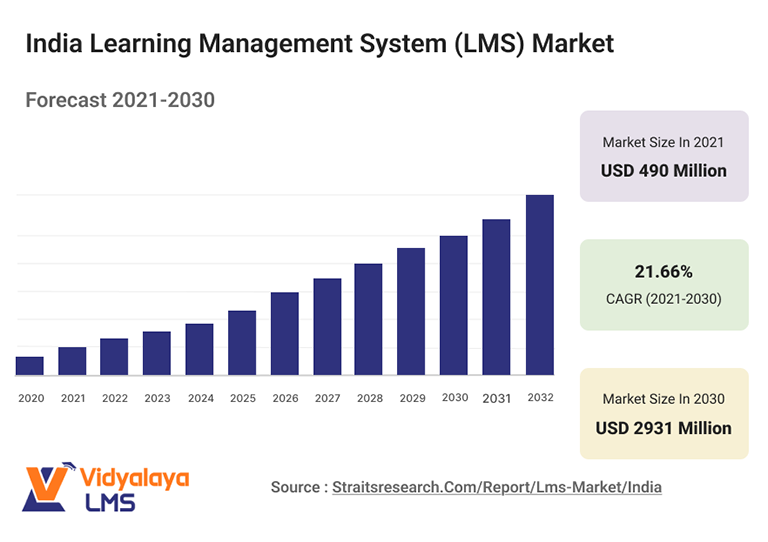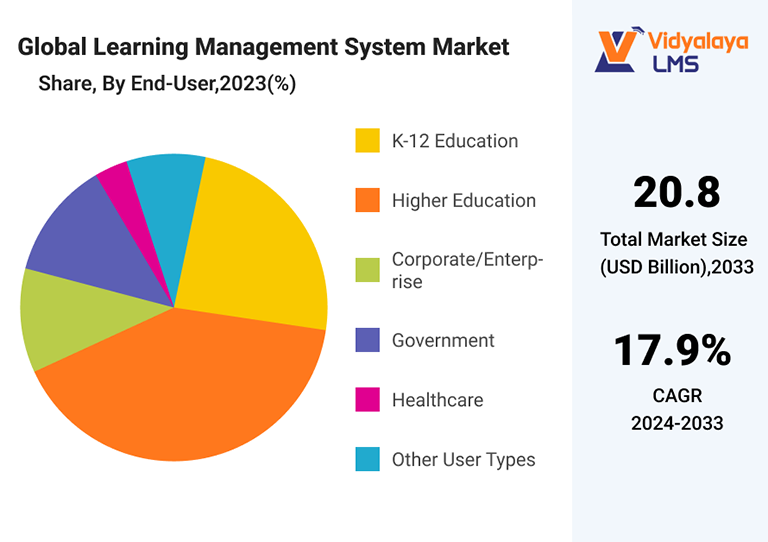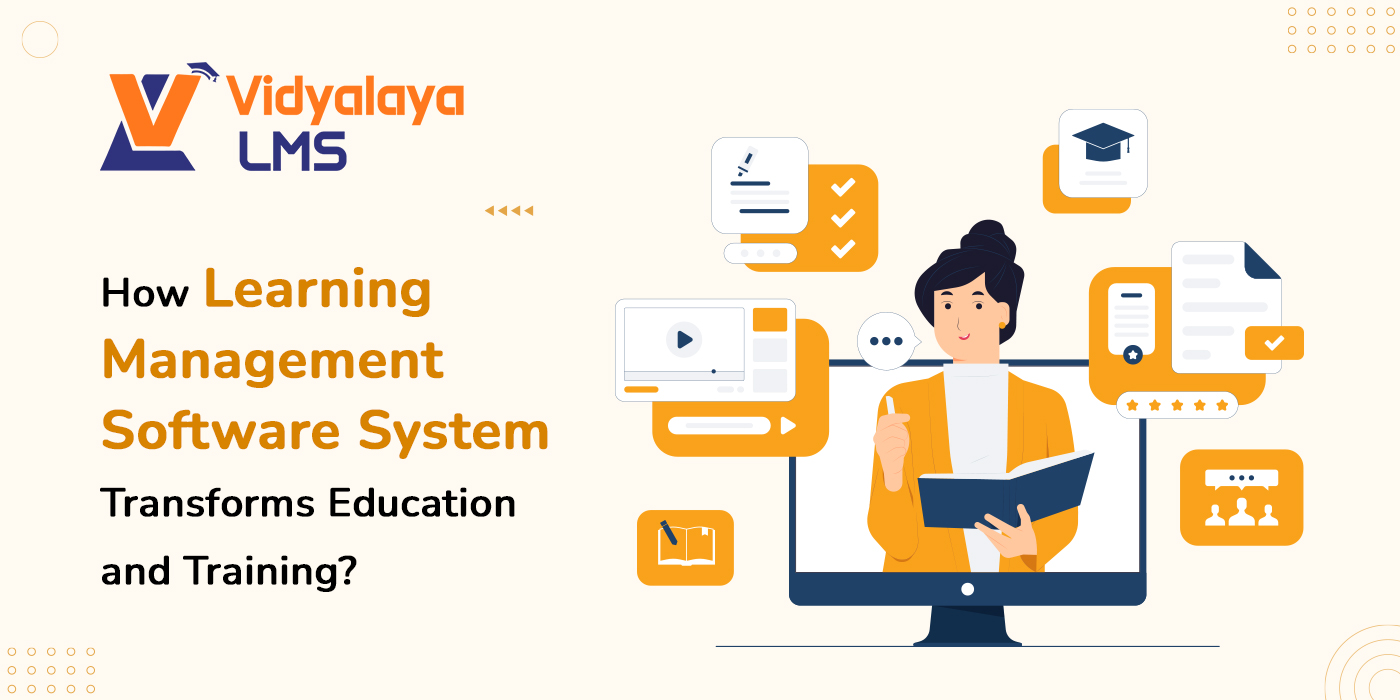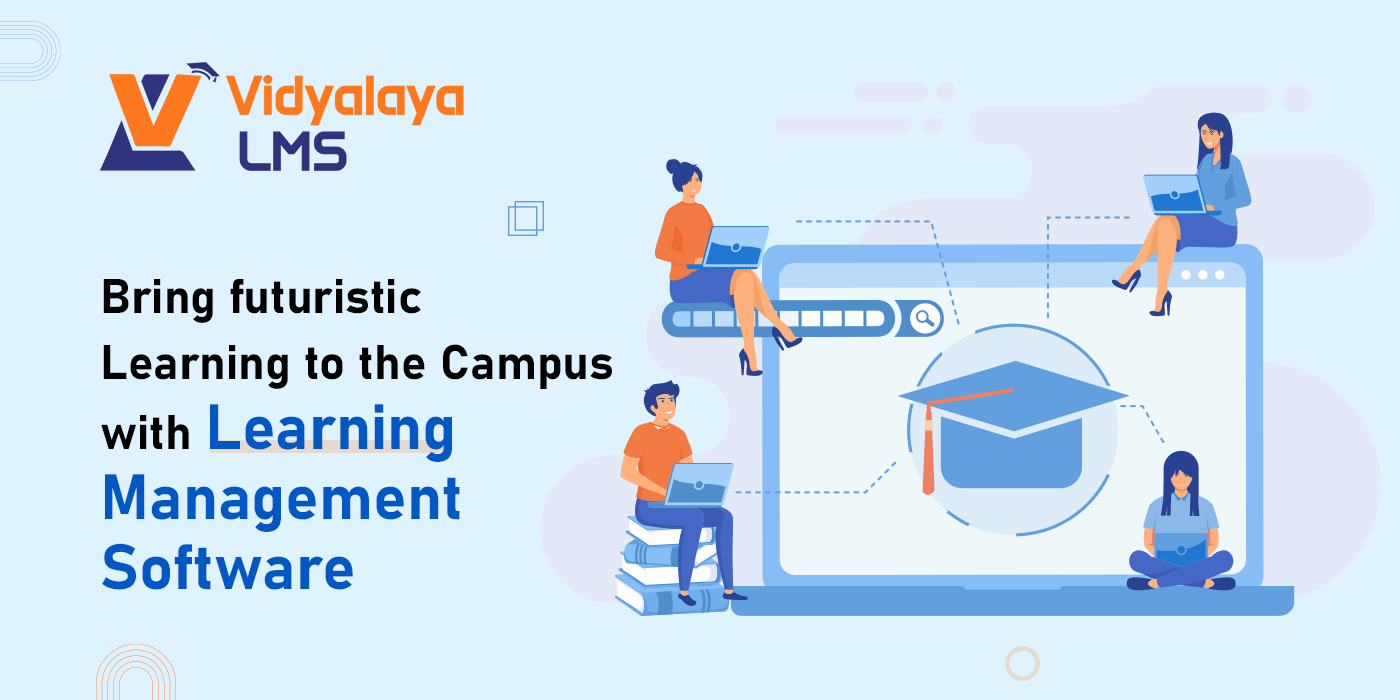The education sector is undergoing a profound transformation, and learning management software is a major contributor to this phenomenon. Institutes are more efficient in delivering and managing exceptional learning experiences to enhance learning. With the volatile needs of today’s modern education, this revolutionary product has proved its significance in meeting those needs and offering personalized learning. Not only the education sector but the corporate training programs have revolved around leveraging the LMS system. Let’s learn will this trend of adopting an LMS system is going to continue in the future or if it will lapse with time.
What Does the Market Predict?
The EdTech market is constantly growing with innovative products that are facilitating the education sector to fuel remote learning as well as process improvisation. The market is experiencing all-time growth in the use and demand of Learning management software, both cloud-based and on-premises, depending on the requirements. The government of India has also launched the NPTEL, the e-learning initiative platform for various disciplines. As a result, there is a significant surge in demand for adoption in institutes, corporations, and other organizations.

This surging graph clearly supports the prediction of increasing demand for LMS systems in the Indian market. The rapid emergence of mobile learning and BYOD (Bring Your Own Device) as a business keeps the market moving in an upward direction. Factors like personalization offered by online channels, emerging trends, and the prevalent culture of the importance of good education play important roles in this process.

Not only the Indian market but the demand persists across the global platform and sectors like corporate and healthcare prefer the tailor-made Learning management system as the major means of training their professionals. It is expected to attain a 17.9% CAGR for the forecasted period of 2024-2033 with acquiring the 20.8 US$ market size by 2033.
How will Learning Management Software transform Education and Training in the future?
After learning the definite scope of Learning management software in the future, let’s move on to understand how it will help in the future!
1. Personalized Learning Experience:
A Learning management system offers an exceptional personalized learning experience considering the uniqueness of every student or professional. As everyone has different strengths and abilities, there is a need to address this uniqueness while learning or during the training. Referring to these diverse styles of learning needs, the LMS system crafts tailor-made training material and style for each learner. Educators or tutors can modify this content, get feedback, and make notes considering the strengths and weaknesses. Learners can learn this content comfortably, revise it by revisiting it, record the lessons, etc.
2. Diversified Content:
Gone are the days when learners merely depended on books as a learning resource. Also, the content in static form doesn’t motivate learners much and makes the process boring. To improve learner engagement, a Learning Management system facilitates multimedia content. This platform can host, store, create, and manage content in audio, video, graphics, images, animations, and text form. The rich content improves the engagement factor in the learning process, grasp the subject better, retain the concept, and perform well in the assessment.
3. Single Platform:
Educators and learners can interact with each other through this platform. The system centralizes all the learning material, manages learner progress, and delivers and manages training content. This streamlines the administration, and efficient access to information, and improves overall efficiency through a single user interface.
4. Collaborative Learning:
Modern learning needs are different than the conventional ones, and this focuses on collaborative and interactive learning. A learning management system transcends the solitary nature of learning and offers a collaborative learning ecosystem. Learners can discuss, chat, work together, and interact through different built-in features like chat groups, discussion boards, virtual classrooms, etc. This nurtures critical thinking, leadership, peer-to-peer learning, and diverse perspectives among the learners.
5. Data-driven Insights:
We are living in a data-driven era where data has gained immense importance, and several decisions have changed over the correct data. Educators, when getting insights into learner progress, requirements, and challenges, are more likely to improve the process as per the gathered data. This data analytics can lead you to make more informed decisions about learning strategies and patterns, areas for improvement, and student performance. A learning management system offers real-time insights that help tutors determine the position of every learner against the key performance indicators. Reports driven from the data help to suggest the best training pathways and offer a holistic training experience.
Concluding Thoughts!
As the future of education is digital, educational institutes and corporate companies must embrace the LMS system. Rather than considering it as a tool, they need to look beyond that. With streamlined administrative tasks, optimized resource allocation, and improved collaboration, they can aim at attaining global audiences. We are at the edge of the digital revolution, and the future of education is interlinked with the evolution of the Learning management system. With every click and interaction, the exceptional product is capable of forging into the future to transcend boundaries and enable learning minds to thrive in a connected world!
Vidyalaya, a leader in the EdTech industry is on the mission of digitalizing education. With top-notch products, it is already facilitating the education sector and is now set to serve corporations with exceptional Learning management software. We are just on the other side of the edge! Just dial our contact number or drop an inquiry mail!











